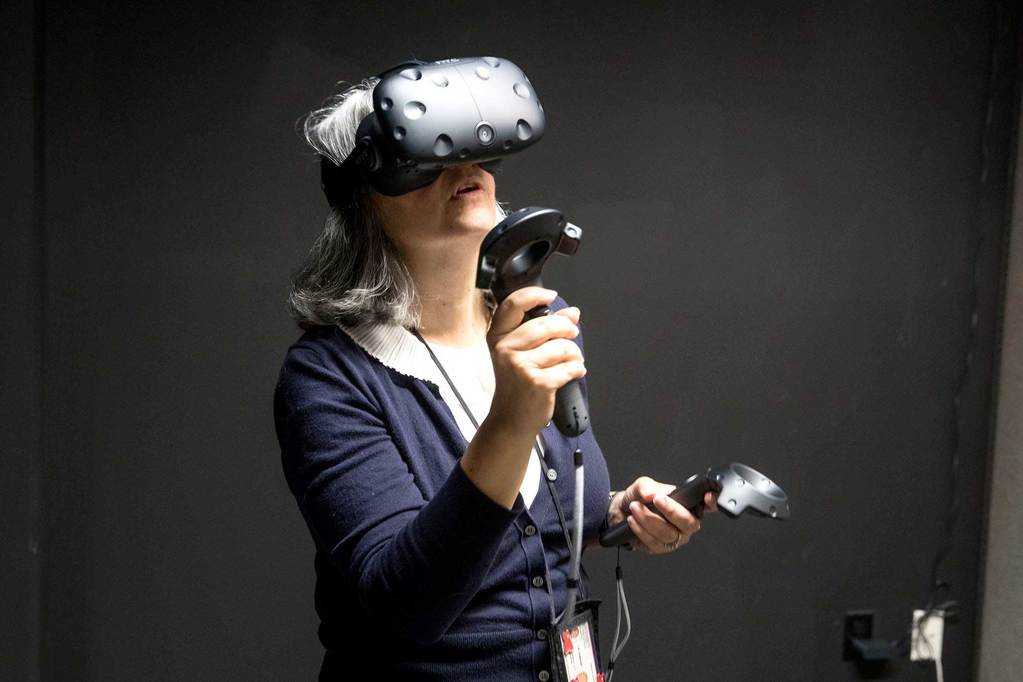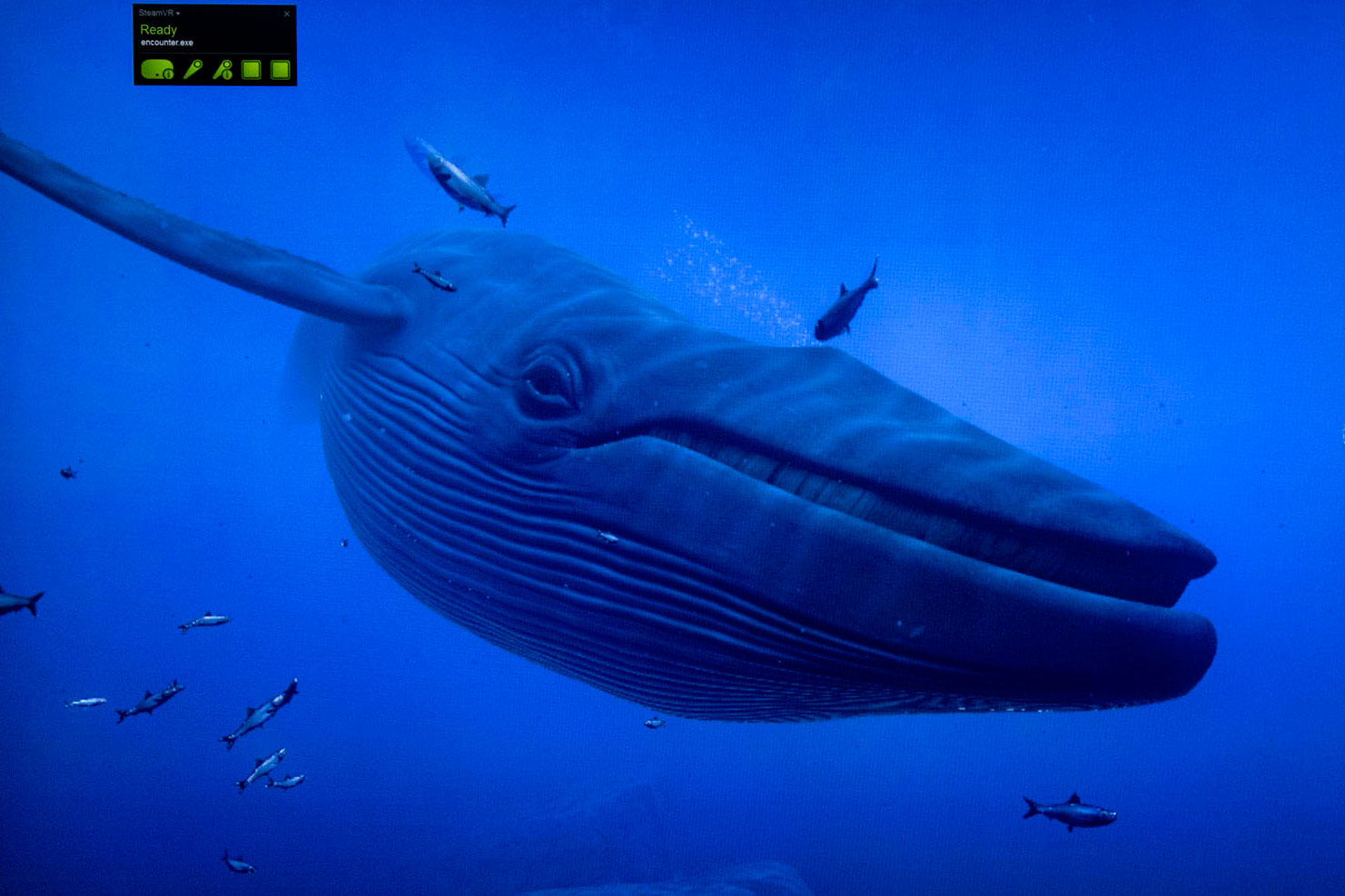You’re standing on the deck of a sunken ship, dozens of feet below the sunlit ocean surface. Below you, just beyond the ship’s deck, the sea bottom falls off to deeper water. In any direction that you look, a variety of fish swim near you, moving away if you extend your arm toward them.
Then, there is an eerie low vibrating sound that startles the fish. You notice a motion off to your upper left. You look, and heading right toward you, is an 80-foot blue whale. It’s not menacing; it’s just coming to take a look. It stops right in front of you and examines you with the biggest eye you’ve ever seen. It even seems to wink at you.
And then it moves on with a stroke of its massive fluke. You flinch, expecting to get knocked off the deck by its wake, but instead there is only the expectation.
This is, after all, virtual reality.
You are immersed in a demonstration experience at the new Virtual Reality Lab at the University of Virginia’s Research Visualization Lab in Rice Hall. The “Viz Lab” is maintained by the UVA Advanced Research Computing Services group and provides visualization tools in support of computational research.
UVA researchers have used the Viz Lab to explore data or images in extreme visual detail. For example, researchers can use two-dimensional images of slices of a fruit fly’s brain to construct a three-dimensional “volume rendering.” In the Viz Lab, they can project this sophisticated depiction onto a 4½-by-7-foot Viz Wall to visualize the whole brain. They can rotate it, viewing it from perspectives that were not possible in the original slices. What if the researchers could use virtual reality, or VR, to explore the brain more deeply?
“VR is the next step in the visualization pipeline, allowing researchers to not just see, but to immerse themselves, and others, in their research,” said Jacalyn Huband, a member of the Advanced Research Computing Services group and manager of the Visualization Lab.

Jackie Huband, Visualization Lab manager, demonstrates the technology.
But how can you use virtual reality in research?
Systems engineering Ph.D. candidate Brian An has ideas. His research focuses on developing a game-based environment geared toward teaching cultural competence. He is writing a software program that uses VR technology to train people on cultural norms around the world, and how people can interact properly in different cultural environments. This is important in his duties as an Air Force major, working on training programs for personnel who may be deployed to hot zones anywhere.
“Some studies have suggested that a more immersive environment may be better suited toward teaching cultural competence skills,” he said. “VR is a realm that has not been widely assessed for these kinds of applications, and I’m hoping that my research may be able to provide concrete evidence confirming these ideas.”
Kimberley Barker, the librarian for digital life at UVA’s Claude Moore Health Sciences Library, sees many possible applications for VR in health care, including pain management therapy, physical therapy (the brain interpreting virtual movements as actual movements, sending signals to the muscles to keep moving – possibly reducing the need for frequent physical therapy sessions), mindfulness and surgery practice.
“Part of my work involves staying aware of emerging technology and deciding which of those would have significant impact on health care,” she said.
Barker was so impressed with her VR experience in the Viz Lab that she purchased equipment and software for the UVA Health System, with the purpose of introducing people to the research and health care possibilities that are likely inherent in the technology.
“We’re at the very beginning of the possible uses of virtual reality as an application tool,” Huband noted. “We’re encouraging people to visit the Viz Lab and explore how they can realize new possibilities when they add virtual reality to their research and teaching.”
To schedule a tour of the Viz Lab, contact Advanced Research Computing Services at arcs@virginia.edu.
Media Contact
Article Information
October 28, 2016
/content/virtual-reality-becoming-virtual-research-uva-visualization-lab

